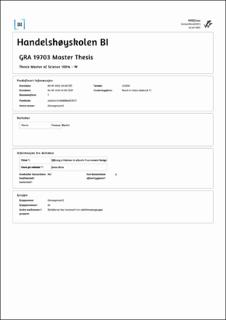Efficacy & Fairness in eSports Tournament Design
Abstract
Tournaments are mechanisms used to rank alternatives, usually in sporting contests whereby contestants are pitted against in each other in matchups to determine the best contestant. Tournament design is a widely researched issue in economic and operations research literature where it is necessary to determine a design that best approximates the “true” or latent ranking of a contestant. Tournament design has been studied in many different fields of study but literature regarding tournament design when it comes to eSports is negligible. eSports employ unique tournament designs not considered in past studies on the matter and their intensive scheduling requires a slightly different skillset in terms of staying power to win. Not to mention these tournament designs often have multiple matchups in elimination instead of a single matchup. In this study, the eSport StarCraft II and its flagship event – the Global StarCraft II League is considered. Various formats including knockout tournaments, Swiss systems and bespoke eSports tournament designs are compared using a Monte Carlo approach. The study also endeavours to separate the effect of seeding from tournament design and whether seeding has a variable effect on different tournament designs. It is found that Round Robin formats present the best approach to determine the “true” ranking, followed by custom eSport tournament design utilized in the Global StarCraft II League. However, Round Robin has more than twice the number of matches compared to any other design. Triple Knockouts offer an alternative to the existing GSL format when it comes to approximating the True Rankings of the best players but are not the best at minimizing discrepancies in finishing positions for other players. These results can be interesting for emerging and existing eSports where tournament design is neither solidified, changes every year, and varies from tournament to tournament within each eSport.
Description
Masteroppgave(MSc) in Master of Science in Business Analytics, Handelshøyskolen BI, 2023
